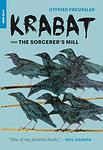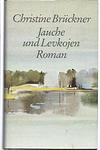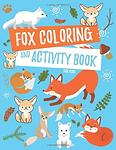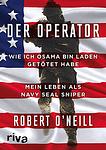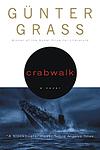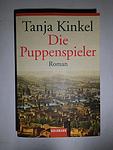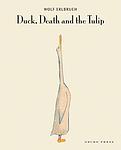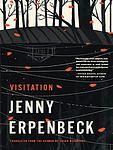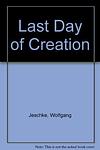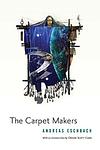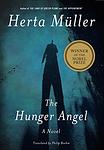The Greatest German "Fiction" Books Since 1970
Click to learn how this list is calculated.
This list represents a comprehensive and trusted collection of the greatest books. Developed through a specialized algorithm, it brings together 294 'best of' book lists to form a definitive guide to the world's most acclaimed books. For those interested in how these books are chosen, additional details can be found on the rankings page.
Genres
Countries
Date Range
Reading Statistics
Click the button below to see how many of these books you've read!
Download
If you're interested in downloading this list as a CSV file for use in a spreadsheet application, you can easily do so by clicking the button below. Please note that to ensure a manageable file size and faster download, the CSV will include details for only the first 500 books.
Download-
26. Hitchhiking: Twelve German Tales by Gabriele Eckart
This collection of short stories offers a vivid tapestry of life in East Germany before the fall of the Berlin Wall, exploring the everyday experiences, dreams, and struggles of ordinary people. Through a series of engaging narratives, the book delves into the complexities of life under a socialist regime, capturing the human spirit in a society rife with political tension and personal longing. Each tale serves as a poignant vignette, revealing the nuances of East German culture and the universal quest for identity, purpose, and connection amidst a backdrop of political oppression and social change.
-
27. Krabat by Otfried Preußler
The book is a dark fantasy novel set in 17th-century Germany, where a young orphan named Krabat is lured to a mysterious mill that he discovers is a school for black magic. The mill is run by a foreboding master who teaches Krabat and other boys the dark arts, but at a sinister cost. As Krabat becomes more skilled in sorcery, he realizes that the mill harbors dark secrets and that escape might be a matter of life and death. He must use his wits and newfound powers to break free from the master's malevolent grip and save his fellow apprentices from a doomed fate. The story is a blend of folklore, coming-of-age, and the struggle between good and evil.
-
28. Tadellöser & Wolff by Walter Kempowski
The book is a semi-autobiographical novel that paints a vivid portrait of middle-class family life in Germany during the interwar years and World War II. Through the lens of a young boy growing up in a provincial town, the narrative explores the everyday experiences, joys, and struggles of the Tadellöser and Wolff families. The story captures the innocence of childhood against the backdrop of historical upheaval, as the protagonist observes the changing world around him, including the rise of National Socialism, with a mix of naivety and acute perception. The novel is both a personal coming-of-age tale and a broader commentary on the societal transformations of the era.
-
29. Jauche Und Levkojen by Christine Brückner
The book is a historical novel that delves into the life of a young woman navigating the complexities of her existence in post-World War II Germany. Set against the backdrop of a country struggling to rebuild and come to terms with its recent past, the narrative follows the protagonist's journey through personal growth, love, and loss. As she grapples with the societal changes and the scars left by the war, the story paints a vivid picture of the era's social dynamics, the challenges faced by women, and the resilience required to forge a new path in a world forever altered by conflict.
-
30. Measuring the World by Daniel Kehlmann
"Measuring the World" is a historical novel that reimagines the lives of two brilliant and driven men, German mathematician Carl Friedrich Gauss and German geographer Alexander von Humboldt. The narrative alternates between the two protagonists, exploring their individual quests to quantify and understand the world. Gauss, a child prodigy from a poor family, rises to become one of the greatest mathematicians in history, while Humboldt, a wealthy and ambitious explorer, embarks on a five-year journey across South America. Their paths converge in a humorous and touching manner, highlighting the contrast between their approaches to knowledge and discovery.
-
31. Floating In My Mother's Palm by Ursula Hegi
The book is a poignant coming-of-age story set in a post-war German town, where a young girl navigates the complexities of her family life and the secrets of her community. Through her eyes, readers experience her relationships with colorful local characters, her discovery of love and loss, and her quest for identity amidst the lingering shadows of World War II. The narrative is a tapestry of small-town life, capturing the essence of growth and the bittersweet nature of memory, as the protagonist learns about the resilience of the human spirit and the fluidity of time, much like floating in the comforting yet unpredictable embrace of her mother's palm.
-
32. The Hidden Word by Ulla Hahn
"The Hidden Word" is a poignant coming-of-age novel set in post-war Germany, which follows the life of a young girl from a conservative, working-class family as she discovers the transformative power of language and literature. Struggling against the constraints of her rural, religious upbringing and the societal expectations placed upon women of her time, she seeks solace and freedom in the world of books. Her intellectual and emotional journey is marked by the tension between her burgeoning individuality and the traditional values she is expected to uphold, leading to a narrative rich in both personal growth and the exploration of the capacity of words to both conceal and reveal profound truths.
-
33. The Discovery Of Slowness by Sten Nadolny
The novel is a historical and philosophical exploration of the life of the 19th-century British explorer Sir John Franklin, reimagined through the lens of his unique perception of time. It delves into Franklin's character, portraying him as a man who experiences the world at a slower pace than those around him, allowing for deep reflection and a profound connection to his surroundings. This narrative approach offers a meditation on the virtues of slowness in a rapidly changing world, challenging the reader to reconsider the value of patience and careful thought in an era that increasingly prioritizes speed and efficiency.
-
34. Der Laden by Erwin Strittmatter
The book is a richly detailed, autobiographical trilogy that paints a vivid portrait of village life in Germany through the first half of the 20th century. It follows the life of Esau Matt, a baker's son, as he grows up during the tumultuous times of the Weimar Republic, the rise of National Socialism, and the Second World War. The narrative delves into the everyday experiences of the villagers, their struggles, and their resilience, capturing the social and political changes of the era through the lens of a small community and the coming-of-age story of its protagonist.
-
35. The Blind Side of the Heart by Julia Franck
"The Blind Side of the Heart" is a historical novel that explores the life of a German woman before, during, and after World War II. The story begins with her abandonment of her young son at a railway station, then flashes back to her own childhood, her experiences during the war, and her tumultuous relationships. The narrative provides a deep and unflinching look at the psychological effects of war and the struggle for survival, as well as the profound impact of trauma and loss.
-
36. Crabwalk by Günter Grass
This novel delves into the tragic sinking of the Wilhelm Gustloff, a German ship, during World War II, through the eyes of a journalist investigating the event's historical and personal ramifications. The narrative weaves together past and present, exploring the intergenerational impact of the catastrophe on survivors and their descendants. The author employs a unique storytelling technique, the "crabwalk," moving backward and forward in time to reveal the complexities of guilt, memory, and the reinterpretation of history. Through its intricate plot and deep character exploration, the book addresses the themes of nationalism, the repercussions of war, and the struggle to come to terms with one's heritage.
-
37. Die Puppenspieler by Tanja Kinkel
Set against the backdrop of the late Middle Ages, the novel weaves a tale of intrigue, power, and betrayal, following the lives of two families of puppeteers who become embroiled in the political machinations of their time. As they travel through the tumultuous landscapes of Europe, they encounter historical figures and events, from the fall of the Knights Templar to the turmoil of the Papal States. The families must navigate the treacherous waters of courtly life, where the art of puppetry becomes a metaphor for the control and manipulation exercised by the ruling classes. Their journey is not only a physical one but also a quest for artistic freedom and personal integrity in an era rife with corruption and upheaval.
-
38. Mondscheintarif by Ildikò von Kürthy
"Mondscheintarif" is a humorous and witty novel that follows the life of a young woman navigating the complexities of modern relationships and the anxieties that come with waiting for a call from a new love interest. Set against the backdrop of contemporary Germany, the protagonist deals with the insecurities and self-doubt that plague many single women as they search for love and fulfillment. With a sharp and engaging narrative, the book delves into themes of romance, self-discovery, and the societal pressures faced by women, all while maintaining a light-hearted and relatable tone that resonates with readers who have experienced the trials and tribulations of dating.
-
39. Duck, Death And The Tulip by Wolf Erlbruch
"Duck, Death And The Tulip" is a poignant and thought-provoking illustrated book that explores the themes of life, death, and friendship. The story follows a duck who unexpectedly befriends Death, and together they embark on a journey of contemplation and acceptance. Through their conversations and experiences, the book delicately tackles the existential questions surrounding mortality, while offering a tender and comforting perspective on the inevitability of death.
-
40. The Invention Of Nature: Alexander Von Humboldt’s New World by Andrea Wulf
"The Invention of Nature" is a biographical account of Alexander von Humboldt, a 19th-century explorer, scientist, and naturalist who revolutionized the way we understand the natural world. Andrea Wulf chronicles Humboldt's travels across South America, his encounters with indigenous peoples, and his groundbreaking scientific discoveries that challenged prevailing notions of the natural world. Humboldt's ideas about interconnectedness and the unity of nature were ahead of their time and continue to influence environmentalism and conservation today. Wulf's book is a masterful exploration of one of history's most fascinating and influential figures.
-
41. Die neuen Leiden des jungen W. by Ulrich Plenzdorf
This novel tells the story of a young man from East Germany who rebels against the societal norms and expectations of his time. The protagonist, a skilled worker, flees from his apprenticeship and his home to Berlin, where he isolates himself in a summer house, devoting his time to his passions of reading and listening to Western music. Using the narrative style of a psychological confession, the book explores themes of youthful rebellion, the search for identity, and the conflict between individual desires and societal pressures. The protagonist's tragic end underlines the oppressive nature of the East German regime.
-
42. The Flounder by Günter Grass
The book is a rich tapestry of historical fiction and magical realism, weaving together the lives of a talking fish, a series of women cooks, and the men in their lives over several centuries. It explores themes of feminism, power, and the evolution of culinary arts, with the titular flounder serving as a guide and witness to the unfolding human drama. The narrative spans from the Stone Age to the modern era, reflecting on the changing roles and relationships between men and women, as well as the impact of these dynamics on culture and society. The novel is a blend of myth, satire, and allegory, presenting a unique perspective on the history of humanity through the lens of food and gender politics.
-
43. Crime by Ferdinand Von Schirach
"Crime" is a collection of short stories that explores the complexities of human behavior and the legal system. Each story presents a different crime and delves into the motivations and consequences behind it, challenging readers to question their own notions of justice and morality. With a keen eye for detail and a unique perspective, the author weaves together thought-provoking narratives that expose the intricacies of the human psyche and the flaws of the legal system.
-
44. Visitation by Jenny Erpenbeck
"Visitation" is a novel that explores the history of a house located by a lake in Brandenburg, Germany, and the various inhabitants it has seen over the centuries. The narrative spans from the early 20th century to the post-war period, encompassing the tumultuous events of the Weimar Republic, the Third Reich, and the German Democratic Republic. Each chapter is dedicated to a different resident's story, including a Jewish family, an architect, a young girl, and a Soviet officer, among others, creating a tapestry of human experiences and emotions shaped by the historical and political upheavals of the time.
-
45. Fortune's Wheel by Rebecca Gablé
"Fortune's Wheel" is a historical novel that transports readers to the tumultuous period of the Hundred Years' War and the Black Death in Europe. The story revolves around a young English craftsman who rises from the ashes of personal tragedy. As he navigates the complex social hierarchies and political turmoil of the 14th century, he finds himself caught between loyalty and ambition, love and duty. The protagonist's journey is one of resilience and transformation, set against the backdrop of a world where the whims of fate can uplift or destroy the fortunes of men. Through vivid storytelling, the novel explores themes of power, destiny, and the enduring human spirit.
-
46. The Collini Case by Ferdinand Von Schirach
This gripping legal thriller delves into the complexities of the German legal system through the lens of a seemingly inexplicable murder case. When an elderly industrialist is found brutally murdered, the suspect, an Italian man with no apparent motive, confesses to the crime, sparking a sensational trial. The young defense attorney assigned to the case finds himself embroiled in a deep-seated legal conundrum that challenges his beliefs about justice and morality. As he delves deeper, he uncovers a dark chapter of German history that reveals the true motive behind the murder, forcing him to confront uncomfortable truths about the past and its impact on the present. This novel is a compelling exploration of guilt, redemption, and the quest for justice in the shadow of historical atrocities.
-
47. The Last Day Of Creation by Wolfgang Jeschke
In this thought-provoking science fiction novel, a daring and unconventional narrative unfolds, exploring the concept of time travel as a tool for geopolitical advantage. The story delves into an ambitious project initiated by the United States military, aiming to drastically alter the course of history and secure ultimate power by transporting resources from the past. As the narrative progresses, the ethical, moral, and unforeseen consequences of manipulating time are examined, leading to unexpected and profound implications for humanity's understanding of history, destiny, and the very fabric of the universe. This novel masterfully combines scientific speculation with human drama, challenging readers to ponder the limits of human ingenuity and the price of ambition.
-
48. The Carpet Makers by Andreas Eschbach
This science fiction novel unfolds on a planet where the entire economy and culture revolve around the intricate craft of making carpets from the hair of the craftsmen's wives and daughters. These carpets are highly prized by the galaxy's elite, not just for their beauty but for a mysterious purpose known only to the empire's emperor. The story intricately weaves together the lives of various characters across different planets, revealing the dark secrets behind the carpet-making tradition and the oppressive regime that sustains it. As the narrative progresses, it delves into themes of rebellion, sacrifice, and the quest for freedom, culminating in a revelation that challenges the very foundation of the characters' understanding of their world and their place within the galaxy.
-
49. The Fox Was Ever The Hunter by Herta Müller
This novel transports readers to the waning days of communist Romania, weaving a tense narrative of life under a repressive regime. Through the eyes of a young schoolteacher and her circle of friends, the story reveals a world where trust is eroded by surveillance and betrayal, and daily existence is suffused with fear and suspicion. The narrative is rich with poetic imagery and symbolism, capturing the oppressive atmosphere of the time. As the characters navigate their lives, their stories become a powerful testament to the human spirit's resilience against the backdrop of political tyranny.
-
50. The Hunger Angel by Herta Müller
"The Hunger Angel" is a poignant novel that explores the harrowing experiences of a young man deported to a Soviet labor camp after World War II. The narrative delves into the psychological and physical toll of life in the camp, where the protagonist grapples with extreme hunger, harsh conditions, and the struggle to maintain a sense of identity and humanity. Through lyrical and evocative prose, the book captures the intense emotions and survival mechanisms of those ensnared in the brutal realities of historical political oppression.
Reading Statistics
Click the button below to see how many of these books you've read!
Download
If you're interested in downloading this list as a CSV file for use in a spreadsheet application, you can easily do so by clicking the button below. Please note that to ensure a manageable file size and faster download, the CSV will include details for only the first 500 books.
Download
